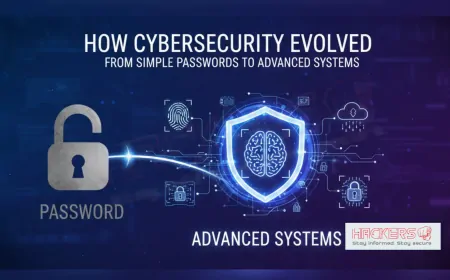How Do Cybersecurity Regulations Affect Data Privacy Rights of Citizens?
Every time you log into a bank app, book a ride, or apply for a job, your personal data is collected. Name. Phone. Address. Aadhaar. Health records. This data powers convenience. But it also attracts hackers. In 2024, India saw over 1.3 million cybercrimes. Hospitals lost patient files. Banks leaked card details. A single breach exposed 4.5 million Air India passengers. Governments stepped in with rules. They said companies must protect data. They created cybersecurity laws. But here is the big question: do these rules help you, the citizen? Or do they give the government too much power over your private life? Cybersecurity regulations are a double-edged sword. They shield your data from criminals. But they also let authorities peek in. This blog explores how these laws balance security and privacy. It shows what India’s Digital Personal Data Protection Act (DPDP) means for you. And it answers: are you safer, or just more watched?

Table of Contents
- The Growing Clash Between Security and Privacy
- What Are Cybersecurity Regulations?
- Understanding Data Privacy Rights
- How Regulations Protect Your Privacy
- When Regulations Weaken Privacy Rights
- India’s DPDP Act: A Closer Look
- Global Examples: GDPR, CCPA, and China
- Finding the Right Balance
- Regulations in Numbers: A Data Table
- What Citizens Can Do
- The Future of Privacy in a Secure World
- Conclusion
- Frequently Asked Questions
The Growing Clash Between Security and Privacy
Cybersecurity and privacy are twins. But they fight. Strong security needs data control. Full privacy needs data freedom. A bank must store your transactions to catch fraud. But you want to delete them after a year. The government wants your call logs to track terrorists. But you want them private. In 2023, the Supreme Court said privacy is a fundamental right. Yet, cybercrime rose 15%. Laws try to solve both. They force companies to encrypt data. They allow police to access it in emergencies. The result? You are safer from hackers. But not always from the state. The real test: does the law trust citizens or control them?
What Are Cybersecurity Regulations?
Cybersecurity regulations are rules that tell companies how to protect digital information. They cover:
- Data storage: Where and how long to keep info.
- Encryption: Scramble data so only authorized people read it.
- Breach reporting: Tell users and government within 72 hours.
- Access controls: Only certain employees see sensitive files.
- Audits: Regular checks to find weak spots.
In India, CERT-In rules say firms must report breaches in 6 hours. RBI mandates two-factor authentication for banks. MeitY pushes zero-trust models. These rules stop attacks. But they also create records. And records can be demanded.
Understanding Data Privacy Rights
Data privacy means you control your personal information. Your rights include:
- Consent: No one uses your data without permission.
- Access: See what companies hold about you.
- Correction: Fix wrong info like address or name.
- Deletion: Erase data when no longer needed.
- Portability: Move data from one app to another.
- Objection: Say no to marketing or profiling.
The DPDP Act 2023 gives you these rights. But it has exceptions. For national security, the government can override them. That is where the tension begins.
How Regulations Protect Your Privacy
Good laws do more than punish. They prevent harm:
- Mandatory Encryption: Hackers cannot read stolen data.
- Breach Alerts: You know fast and change passwords.
- Data Minimization: Companies collect only what they need.
- Privacy by Design: Apps build safety from day one.
- Fines for Leaks: ₹250 crore penalty under DPDP scares firms.
After GDPR in Europe, data breaches dropped 40%. India’s DPDP aims for the same. When companies follow rules, your data stays yours.
When Regulations Weaken Privacy Rights
Not all rules help citizens. Some hurt:
- Mass Surveillance: CERT-In logs mandate 5-year data storage. Police can demand it.
- Weak Consent: Government is exempt from DPDP for security.
- Backdoor Access: Laws may force companies to unlock encryption.
- Over-Collection: Firms store more to comply, creating bigger targets.
- No Appeal: Citizens cannot challenge government data grabs.
In 2021, Pegasus spyware hit 300 Indian phones. Some say laws enabled it. Security won. Privacy lost.
India’s DPDP Act: A Closer Look
The Digital Personal Data Protection Act 2023 is India’s big move. Key points:
- Applies to all digital personal data.
- Needs clear consent with easy withdrawal.
- Lets you access, correct, and delete data.
- Sets up Data Protection Board for complaints.
- Fines up to ₹250 crore for violations.
But exemptions exist. For “state security,” government can collect without consent. No time limit. No oversight. Critics say this creates a surveillance state. Supporters say it stops terror. The truth? It depends on trust in government.
Global Examples: GDPR, CCPA, and China
Other countries show different paths:
- GDPR (Europe): Strong citizen rights. €20 million fines. No security exemptions.
- CCPA (California): You can opt out of data sales. Companies must disclose.
- China PIPL: Like DPDP but government has full access. Privacy is secondary.
- Brazil LGPD: Balances rights and security with independent authority.
India’s DPDP is in the middle. It gives rights. But keeps a backdoor. Europe trusts citizens. China trusts state. India is learning.
Finding the Right Balance
Security and privacy are not enemies. They are partners. How to balance?
- Time-Bound Access: Government gets data for 90 days, not forever.
- Judicial Oversight: Judge approves surveillance, not just police.
- Transparency Reports: Government publishes how much data it took.
- Citizen Redress: Appeal data misuse to independent board.
- Tech Solutions: Use anonymized data for security, not raw files.
India can lead. Combine DPDP rights with strong checks. Trust, not fear, should guide law.
Regulations in Numbers: A Data Table
Here is a table comparing global data laws:
| Law | Country | Max Fine | Citizen Rights | Govt Exemption |
|---|---|---|---|---|
| DPDP Act | India | ₹250 crore | Consent, Delete, Access | Yes (Security) |
| GDPR | EU | €20 million | Full Rights | No |
| CCPA | USA (CA) | $7,500/violation | Opt-Out, Access | Limited |
| PIPL | China | ¥50 million | Basic Rights | Full |
| LGPD | Brazil | R$50 million | Full Rights | With Oversight |
| PDPA | Singapore | S$1 million | Consent, Access | Yes |
India has strong fines. But weak checks. Balance is key.
What Citizens Can Do
You are not powerless. Take control:
- Read privacy policies before clicking agree.
- Use strong, unique passwords and 2FA.
- Ask companies to delete your old data.
- Report breaches to Data Protection Board.
- Support privacy-focused apps and laws.
Your voice matters. Write to MPs. Join awareness campaigns. Demand transparency.
The Future of Privacy in a Secure World
By 2030, India aims for:
- Privacy by Default: Apps delete data automatically.
- AI Privacy Guardians: Tools that warn before sharing.
- National Privacy Day: Annual education drive.
- Independent Data Auditor: Checks government access.
- Global Privacy Alliance: India leads developing nations.
Technology will help. Blockchain for consent. Zero-knowledge proofs for secure sharing. The future can be safe and private.
Conclusion
Cybersecurity regulations are here to stay. They stop hackers. They force companies to care. But they also open doors to surveillance. India’s DPDP Act gives you rights. It also gives government power. The balance is fragile. Europe shows strong privacy works. China shows security can crush rights. India must choose trust. Citizens must demand oversight, transparency, and limits. Use your rights. Ask questions. Support laws that protect, not control. A secure nation must be a private one. Your data is your dignity. Guard it. And make sure the law does too.
Frequently Asked Questions
What is the DPDP Act?
India’s 2023 law that controls how companies handle personal data.
Do I own my data?
Yes. You have rights to access, correct, and delete it.
Can government see my data?
Yes, for security. But no clear time limit or oversight.
What is data minimization?
Companies collect only what they truly need.
Can I delete my Aadhaar data?
Not fully. But you can limit its use with consent.
What happens in a data breach?
Company must tell you in 72 hours under DPDP.
Is encryption good for privacy?
Yes. It locks data so only you or authorized people see it.
Why do laws exempt government?
For national security. But it reduces citizen trust.
Can I sue for data misuse?
Yes. File with Data Protection Board. Fines up to ₹250 crore.
Does GDPR apply in India?
No. But Indian firms follow it for EU users.
Can I stop data selling?
Yes. Opt out under DPDP. Companies must obey.
What is privacy by design?
Build apps with privacy from the start, not as add-on.
Can police demand my phone?
Yes, with court order. But not without reason.
Is my health data safe?
DPDP calls it sensitive. Needs extra protection.
Can kids have privacy?
Yes. Parents consent for under-18. No profiling.
Will AI reduce privacy?
Not if regulated. AI needs anonymized data.
Can I see government data on me?
Not yet. DPDP exempts state. Push for RTI reform.
How to complain under DPDP?
Contact company first. Then Data Protection Board.
Is India’s law weak?
It has strong fines. But weak checks on government.
What is the future of privacy?
Strong rights, smart tech, and citizen power.
What's Your Reaction?










































































